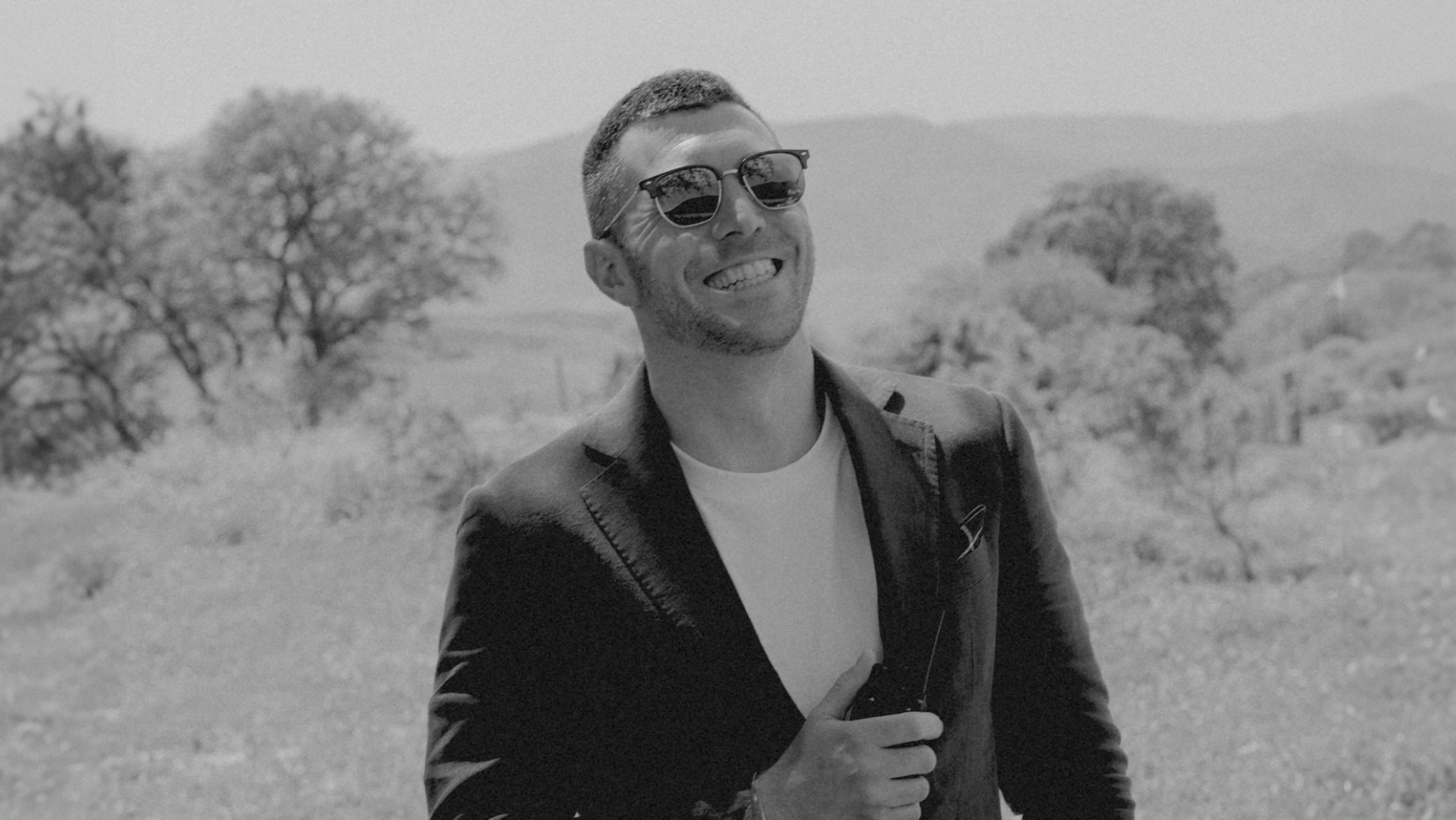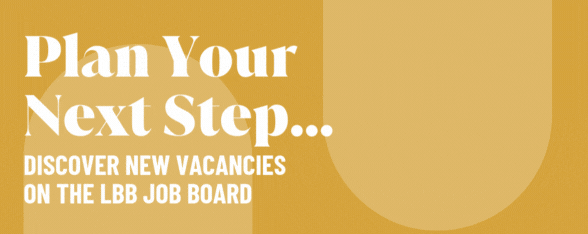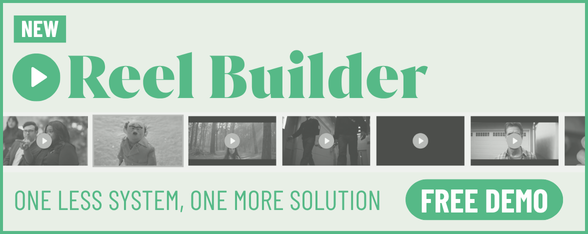
Meet Your Makers: Adam Javes on His Desire to Do Better

Adam Javes began his professional life working as a lawyer, before co-founding a music events and promotion company. With a love for creative talent, logistics and relationship building, he later swapped working with up-and-coming musicians for directors. After cutting his teeth producing commercial and documentary projects around the world, Adam joined Havas to bolster their in-house production offering, and spent six years helping shape its different iterations, in both London and New York.
Adam is now an executive producer at Spindle, where he helps nurture and grow the company’s roster of progressive talent.
LBB> What first attracted you to production - and has it been an industry you’ve always worked in or did you come to it from another area?
Adam> I started my professional life in law, which I appreciate is a bit weird. It’s a great dinner party anecdote to be able to say you’re a qualified solicitor, but that wasn’t enough to keep me in a job that, at the risk of sounding dramatic, was utterly soul sucking.
My passion has always been music, and prior to, and during, my foray into the legal world, I ran a music events and promotion company. Having shaken the shackles of law, I then put everything into this, which through a few other twists of fate, eventually became my springboard into production.
LBB> What was your first role in the production world and how did this experience influence how you think about production and how you grew your career?
Adam> Technically, my first role in production was running my company. Although the logistics involved artists, audiences and venues, rather than directors, crews and sets; I still had to deliver a product on time and on budget.
Being able to draw on this transferable experience, and thanks to the faith of some excellent people, I was able to segue onto productions as a producer quite quickly.
For a very long time, I had crippling imposter syndrome around the fact that I hadn’t come up in the industry through the traditional roles, but when I kept getting asked back for jobs, I realised I had in fact paid my dues - I just did it in a different way, and long before I was officially in the world of production.
This means I always approach production problems with as leftfield a mindset as possible; there isn’t really a manual for production, and I’ve definitely embraced that wholeheartedly. For me, it’s all about pulling on outside experiences and, when the time is right, embracing the unorthodox.
Just because something isn’t usually done in a certain way, doesn’t mean it’s not a solution.
LBB> How did you learn to be a producer?
Adam> By getting things wrong, and being given a safe environment to do that in. Without this, it’s impossible to learn. Beyond that, it was very much ‘rinse and repeat’. Staring at budgets and being on set as much as possible. I also quickly learned that being a good producer, and being a good person, are largely interchangeable.
The more you inject humanity into productions, the easier - and more fun - they become. I definitely had an early epiphany that I didn’t need to be so concerned with always relying on newly learned skills, and could lean largely on good old fashioned innate people skills to do a good job.
LBB> Looking back to the beginning of your career, can you tell us about a production you were involved in where you really had to dig deep and that really helped you to grow as a producer?
Adam> I was on shoot in South Korea. We were there for the locations, and because that’s where the client was based, but didn’t really have the budget to justify being there. As such, the entire production team was made up of me, a self-shooting director, local fixer and driver.
We were incredibly stretched and the language barrier was proving difficult, but despite accidentally driving through waterfalls, getting stuck in mud fields, losing all our camera equipment and being asked to leave a restaurant for reasons I’m still unaware of, we got through it.
It was a great lesson in trusting the people around you - both on the ground and back home - and the process.
Sometimes you just have to get your head down and muddle through - the shit stops eventually.
LBB> A good producer should be able to produce for any medium, from film to events to digital experience. Do you agree or disagree with this statement? Why/why not?
Adam> Based on my background, I should absolutely agree with this - and I do to some extent - however I’m also a firm believer in utilising experts in a field, rather than generalists, when the time is right.
As producers, we can muddle our way through most scenarios, but only by understanding the nuances of a medium can you excel, particularly when it comes to craft. I think being able to jump from job type to job type is impressive, and drawing on transferable skills is important, particularly at the beginning of your career, but I’ll definitely produce you a better film than a digital experience!
LBB> What’s your favourite thing about production and why?
Adam> Pooling together the specific skillsets of a group of people to tell a cohesive story - a story that was entirely nonsensical before everyone grouped together - meandering through the melee of waffle that so often comes with this job, and ending up with something articulate and beautiful is, for me, an unparalleled satisfaction.
Like a perfectly choreographed dance, that’s on budget, and on time. And let’s be honest, who doesn’t like dancing?
LBB> How has production changed since you started your career?
Adam> More deliverables, less money. More expectation, less time.
LBB> And what has stayed the same?
Adam> The fun! It’s wild that we get to do what we do as a job.
LBB> What do you think is the key to being an effective producer - and is it something that’s innate or something that can be learned?
Adam> Emotional intelligence.
As a producer you assume the role of conductor - bringing the right people together at the right time in the right way. If you can’t communicate effectively from your position, the chain of communication between the strands of the rest of the production, falls apart.
Organisation, logic, dogged determination - all play an important role - but an effective producer is nothing without empathy and the ability to rouse people around a specific cause.
A successful production is the sum of its parts, and the producer is only one part of that… so be nice!
LBB> Which production project from across your career are you most proud of and why?
Adam> I produced a feature-length documentary series for O2 and England Rugby that shot across Japan and the UK over a number of months with a host of celebrity talent. It was one of the most gruelling but rewarding productions I’ve ever been a part of, and was something that I was intrinsically tied to from conception through to final delivery.
We were invited into sumo stables, recreated rugby matches on gravel pitches and got very naked at onsens. It was an incredible experience and despite not really having enough money to make it, everyone went above and beyond to make it an overwhelming success.
I also got to do a lot of karaoke.
LBB> And in terms of recent work, which projects have you found to be particularly exciting or have presented particularly interesting production challenges?
Adam> I recently worked on a charity spot for Maybelline’s mental health initiative, ‘Brave Together’, with the brilliant Molly Burdett. Aside from the fact that making charity films gives us an opportunity to do something good (which, let’s be honest, can be difficult to directly do in our industry), I love the challenge that a lack of budget presents.
You have to be so much more resourceful when making a charity film, and it’s lovely to see the good people of our industry donate their time to rally around a positive cause.
For me, there’s something quite nostalgic about it - stretching budgets to work miracles and everyone doing it for the love - just like the early days of your first productions.
LBB> Producers always have the best stories. What’s the hairiest / most insane situation you’ve found yourself in and how did you work your way out of it?
Adam> We once filled a residential house full of sheep and believe me when I say, they shit a lot. The only real solution was a lot of elbow grease (and an eccentric, wealthy owner who, on balance, found it all pretty funny).
LBB> What are your personal ambitions or aspirations as a producer?
Adam> I would love to continue making excellent film work - hopefully one day in the narrative space - and I’d like to help usher in the next generation of talent as part of this. I’ve always enjoyed being surrounded by creative talent - I started my career working with up-and-coming musicians and later swapped that for directors.
I know what my limitations are, and there’s so many amazing people out there who don’t have those limitations; they just need that little nudge in the right direction.
LBB> As a producer your brain must have a neverending "to do" list. How do you switch off? What do you do to relax?
Adam> I’ve skateboarded as long as I can remember, and growing up hasn’t stopped that. There’s nothing quite like a sunrise session at the skatepark to clear the mind. That, and I am quite partial to a sauna and cold plunge combo.
Those things aside, I think it’s really important to set yourself boundaries between work and personal life, particularly in today’s world where you can be contacted by various means at the drop of a hat. I try to implement small measures that together, have a big impact.
For instance, I silence all notifications on my devices after a certain time, and never have push notifications turned on for emails.
I don’t want to be reminded of the constant barrage that is growing my to-do list. I’ll check that when I decide, and Spindle very much has a culture where protecting personal life is respected and encouraged, so that helps too.
LBB> Producers are problem solvers. What personally fuels your curiosity and drive?
Adam> The desire to do better. When you boil it down, I’m a neurotic perfectionist. I think a lot of producers are, and having to be a problem solver is just part and parcel of wanting to get things right.
LBB> What advice would you give to people who are interested in becoming a producer?
Adam> Only do it if you really love it. It’s an incredible job that offers up incredible opportunities, but it’s hard. You have to want it. Beyond that, there’s no substitute for being on set - in whatever capacity - and surrounding yourself with likeminded people who are in, or want to be, in the industry.
That bit is easier said than done, which is why initiatives like Spindle’s ‘Open Studios’ are so helpful ;)
LBB> From your experience what are the ingredients for a successful production?
Adam> Good creative above all else. Then the requisite amount of money and time to deliver on that creative, with the right director - and team behind them - to execute it.
LBB> What’s the key to a successful production-client relationship?
Adam> Communication, and in particular, good communication upfront. As a part of that, honesty. Too few people outline limitations from the outset. Transparency and candour are key. It’s also important for production to remember that while we’re trying to make the best film possible, we’re still doing it for the client.
Ultimately, it’s their film. I think a lot of production-client relationships would go more smoothly if people had that at the forefront of their minds.
LBB> One specifically for EPs: Producers are naturally hands on - they have to be. How do you balance that in the more managerial role of an EP?
Adam> You have to trust in the people around you. A good EP is only as good as their producer(s) - and the myriad other wonderful people who make a production company.
Being an EP also usually comes after years of producing, and I think it’s nice at that point to be less hands on; focussing on the elements, at least for me, that have always been the most exciting - the creative, and finding the right people to make that as good as it can be.
It’s not so much about balancing the elements, as it is letting go of the detail and embracing the bigger picture.
















